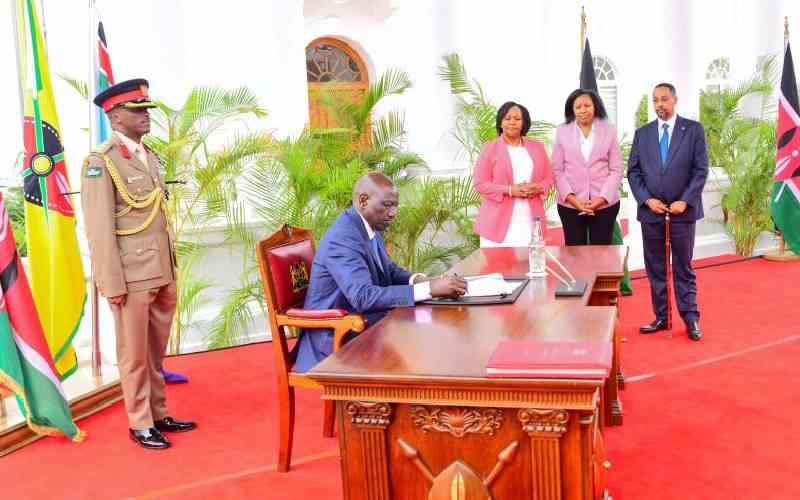×
The Standard e-Paper
Fearless, Trusted News

Cabinet Secretaries now face stringent deadlines and tough objectives after signing performance contracts with President William Ruto to raise revenue collection, provide world-class services and ensure taxpayers get value for their money.
The President raised the bar for all CSs, some who have been his friends, in contracts that provide finer details on activities that should be done, items of focus, timeframe, expectations, revenue collection, hustlers needs, and how he wants his administration governed.